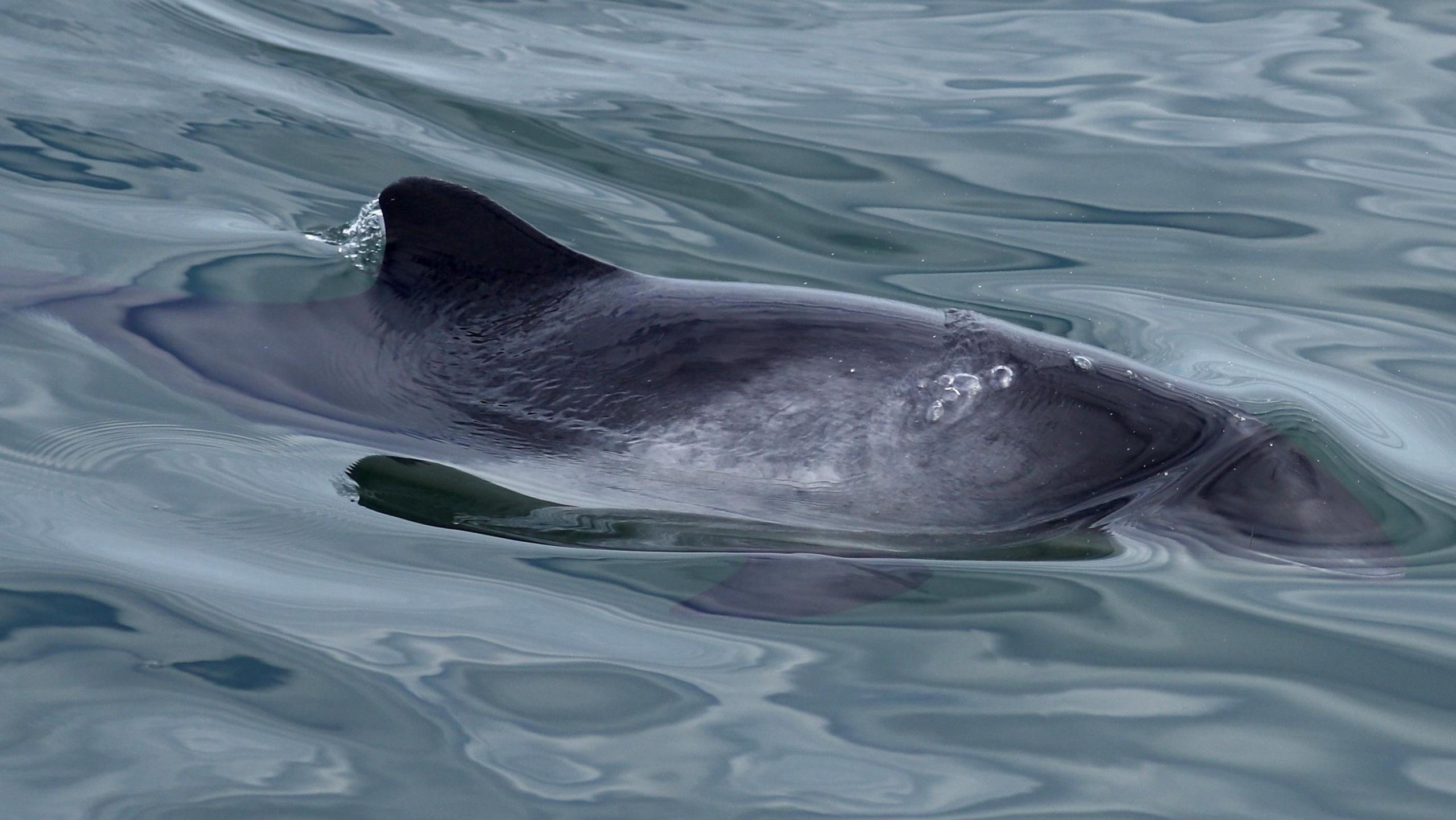Channel now hotspot for porpoise species - charity

There were concerns overfishing had stopped the Channel from sustaining harbour porpoises
- Published
The English Channel has become a hotspot for a species of porpoise, a charity has said.
It was feared overfishing had stopped the Channel from sustaining harbour porpoises.
But conservationists from charity ORCA say they are thrilled that animals including whales and dolphins are being spotted in the Channel after decades of many species being scarce in the area.
The dolphin and whale charity's head of education Anna Bunney said: "People think there's nothing in the Channel, but there's so much life."
Ms Bunney says you can "see it all" from the cross-channel ferries
ORCA works in partnership with ferry companies such as DFDS to put its scientists on cross-channel sailings to study wildlife from the decks.
The charity also gets members of the public to be amateur spotters to help record the marine wildlife they see.
Dr Peter Evans, director of national marine charity the Sea Watch Foundation, said harbour porpoises moving into the south-eastern part of the Channel was "almost certainly" related to prey.
"Certain species like sprat are doing well with climate change, they do well in the warmer waters," he said.
"For other larger species like mackerel, there are a lot tighter regulations now on fishing mackerel so those stocks are being able to recover."
But although numbers of whales and dolphins in the Channel are increasing, the animals are still in danger.
Dr Evans said: "The downside with all of this is bycatch, animals being caught in nets and fishing gear.
"With porpoises in particular, they're slow to grow and the population cannot sustain this level."
Follow 91热爆 Kent on , on , and on . Send your story ideas to southeasttoday@bbc.co.uk, external or WhatsApp us on 08081 002250.
Related topics
- Published6 April
- Published4 October 2022